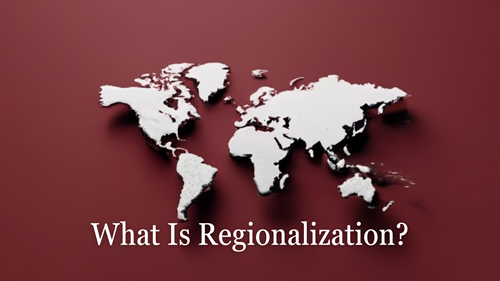
Regionalization may sound like a complex term, but it's becoming an increasingly hot topic in the United Methodist Church (UMC). At its core, regionalization is all about granting different parts of the church the autonomy to shape their own rules according to their specific needs. In this blog post, we'll explore this concept in simpler terms, breaking down the reasons behind it and how it's already influencing various aspects of the UMC.
What Is Regionalization?
Regionalization, a concept that's been a part of the United Methodist Church (UMC) since its establishment in 1968, revolves around the idea of allowing different areas or groups within the church the flexibility to adapt their practices to suit their specific needs better. Currently, the U.S. holds a central role within the denomination, influencing decisions made at the General Conference, which is the highest decision-making body of the UMC, responsible for establishing church policies and positions on global issues.
Regionalization seeks to address this imbalance by decentralizing the influence of the United States on the General Conference. It promotes the UMC's fundamental principle of connectionalism (Connectionalism is a way of being the church that emphasizes the importance of relationships and the interdependence of all parts of the church), allowing for more context-specific ministry and mission throughout the church. The proposal aims to provide regions, both within and outside the U.S., with equal privileges, ensuring the unity of the UMC while expanding the authority granted to non-U.S. regions, often referred to as Central Conferences.
While some argue that regionalization may shift the UMC toward a more regionalized structure, it also has the potential to foster collaboration and resource-sharing among members for the common growth and development of the Church, regardless of geographic distinctions. In essence, regionalization is about enabling various parts of the UMC to tailor their practices to their unique contexts, ultimately promoting relevance, equity, and trust within the denomination.
Why Regionalization Matters
The United Methodist Church is a massive worldwide organization, and it embraces a diverse range of cultures, beliefs, and practices. What works in one part of the world might not work in another. By allowing different regions or groups to adapt certain rules and practices to their needs, the church can better serve its members in varying contexts.
The conversation surrounding regionalization holds significant importance for a global church like the United Methodist Church (UMC), which encompasses diverse contexts, people, and unique issues specific to their regions. Regionalization matters because it seeks to address the inherent challenges and complexities associated with a global church structure. Here are several key reasons why this conversation is crucial:
Equity Across Diverse Contexts: The UMC operates in various parts of the world, each with its distinct cultural, social, and theological differences. Regionalization acknowledges these variations and aims to provide equity by allowing different regions or groups the autonomy to adapt their practices to suit their specific needs. This approach ensures that the church's policies and practices remain relevant and effective across diverse contexts, fostering a sense of inclusivity.
Decentralizing Influence: The UMC has historically been centralized, with the United States playing a predominant role in shaping decisions at the General Conference. This centralization may not fully consider the unique issues and perspectives of non-U.S. regions. Regionalization seeks to decentralize this influence, reducing the U.S.'s overrepresentation and allowing all regions to have a more equal say in decision-making. This shift ensures that the church's governance reflects the collective voice of its global members.
Cultural Relevance: Different regions often face specific challenges and ethical issues that may not be universally applicable. Regionalization enables the UMC to be more culturally relevant by tailoring its ministry and mission to the unique needs and circumstances of local communities. It respects the principle of connectionalism while acknowledging the importance of context-specific approaches to faith and practice.
How Regionalization Works
In the UMC, there are various administrative bodies, and they all have different levels of autonomy. For example, some areas of the church are outside the United States, and they've had more freedom to make decisions that align with their unique situations. This autonomy includes determining how they ordain clergy, a process known as ordination.
Ordination is the process by which individuals are consecrated as ministers, deacons, or elders, and it is critical to how we function as a church. The UMC has seen different regions adopt different approaches to ordination based on their specific needs. For instance, some areas have chosen to avoid following specific changes made by the General Conference in 1996, which introduced a new system for ordination for deacons as a separate order. Instead, they've preferred to stick with their established processes.
What's fascinating about regionalization is that these variations in practices and structures have yet to threaten the unity of the UMC. Despite different regions having their way of doing things, the church remains connected and continues to function as a single entity worldwide. The conversation about regionalization is critical because it addresses the challenges and opportunities presented by a global church that represents a wide array of contexts, peoples, and specific issues. It seeks to balance the influence, foster equity, and promote cultural relevance, all while maintaining the unity of the United Methodist Church in an ever-diverse world.